Netaji: True Father of India's Freedom - Vedic Empire Presents
'A Nation that Forgets its Past has No Future' Winston Churchill
Thus the British Powers did their best to Cloud the True History of Modern India
A presentation by Vedic Empire Production's Vrndavan Parker, Kalia Robinson and Dr. Pavan Kamlesh of the documentary 'Netaji and India's Freedom'.Discover the facts regarding world history and the role of Subash Candra Bose's impact on India's Freedom struggle. Known as 'Netaji' or the 'Leader' by the people of India he remains one of India's most popular historical figures. Unlike Gandhi or Nehru, Netaji successfully harnessed the loyalty of a majority of Indians regardless of caste, class, ethnicity or religion. During WWII he created a Free India Government and developed a functioning political body that encompassed all branches of society. He was a visionary who recognized the atrophied aspects of Indian society yet was able to bring about a Modern ideal that preserved and respected India's ancient traditions. His political vision was one of humane social ideals that encompassed all members of Indian society.His efforts to free India by allying with the Axis powers of WWII have at times been misrepresented and portrayed as quasi-fascist.He only allied with the Germans and Japanese as a means to dislodge the British from India. He escaped British India disguised as a Muslim, he carried in his pocket a picture of Mother Kali, his holy beads and a copy of the Bhagavad Gita.
Netaji's plan was to bring about a massive uprising in his home-state of Bengal. However this was thwarted by the British government's Intentional policy of 'famine-creation'. This led to the death of approx. 3 million Bengalis. Devastated by starvation and death the people had very little time or strength for anything but survival. Churchill's only response to a telegram from the government in Delhi about people perishing in the famine was to ask why Gandhi hadn't died yet. Although refusing to meet India's need for food, Churchill insisted that India continue to export rice."I hate Indians," he told the Secretary of State for India, Leopold Amery."They are a beastly people with a beastly religion."Churchill knew that his policies would result in mass death. He ignored an offer of 100,000 tons of Burmese rice from Netaji, discouraged a gift of wheat from Canada, and turned down rice and wheat volunteered by the United States.Churchill would tell his secretary that Hindus were a foul race protected by their rapid breeding from "the doom that is their due." He wished Arthur Harris, the head of British bomber command, could "send some of his surplus bombers to destroy them."
Netaji was also betrayed by a close associate, Bhagat Ram Talwar who's MI6 codename was 'Silver'. Thru him the Soviets and MI6 knew at all times what Netaji was upto. The end result was an eventual dismantlement of all Netaji's efforts. In fact Prabhupada stated that the atomic bombing of Nagasaki was in order to try to kill 'my college mate' Netaji. And Prabhupada also said,"Japanese planned:'We shall enter India and then kill Subash Bose.' That was their trick."
In the end Netaji was indeed betrayed by his Japanese allies who were given a choice of their Emperor or Netaji. After WW-II, Japan revived their old connection with UK via spies. Japanese and British Intel were linked long before WWII. Japanese agents agreed to eliminate Netaji. Motive was to appease the British and purchase security for Japan's royal family.This partially explains the mystery of why the Emperor escaped the War Crime's Tribunal.
Netaji had also amassed a huge fortune of gold and jewels and cash in the cause of India's Freedom. He boarded a Japanese plane in Taiwan carrying this treasure with him and planned to use this wealth to fund a Free India Govt in Exile. This treasure was never found after his alleged death in that very plane. It is believed he was handed over to Stalin who had been luring Netaji to Russia with promises of support against the 'Imperialist' powers.
P.V. Chuckraborty wrote, 'When I was Governor of West Bengal in 1956, Lord Clement Attlee, who as the British Prime Minister in post war years oversaw India's freedom, visited India. I put it straight to him: "The Quit India Movement of Gandhi practically died out long before 1947 and there was nothing in the Indian situation at that time which made it necessary for the British to leave India in a hurry. Why then did they do so?' In reply Attlee cited several reasons, the most important of which were the INA activities of Netaji Subhash Chandra Bose, which weakened the very foundation of the British Empire in India, and the Royal Indian Navy Mutiny which made the British realize that the Indian armed forces could no longer be trusted to prop up the British. When asked about the extent to which the British decision to quit India was influenced by Mahatma Gandhi's 1942 movement, Attlee's lips widened in a smile of disdain and he uttered, slowly, "Minimal'."
-
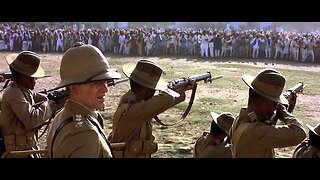 20:15
20:15
holyspiritofindia
1 year agoHOLY SPIRIT OF INDIA ! = ACT 1 - SCENE 1 = BRITISH EMPIRE AMRITSAR MASSACRE ! HIGH DEFINITION
208 -
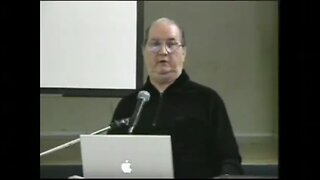 4:10
4:10
Liberty TV
2 months agoThe "Holy Father" Has Plans for the Whole World ! Ensure the Good Politicians in Your Country Know !
3931 -
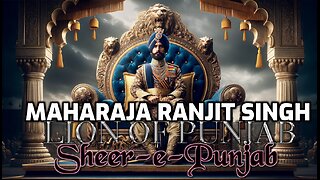 12:01
12:01
Rashid Kamboj
5 months agoSIKH MAHARAJA RANJIT SINGH | LION OF PUNJAB | KHALSA EMPIRE #sikhhistory #sikhism #gurugobindsinghji
63 -
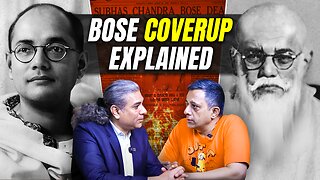 2:52:57
2:52:57
theabhijitchavda
6 months agoAnuj Dhar: Was Netaji Subhas Chandra Bose Gumnami Baba? | Abhijit Chavda Podcast 43
46 -
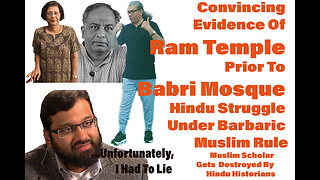 1:20:36
1:20:36
HinduByChoice
4 months agoThe Tragedy of Babri Masjid and Some Truth About Hindustan | Yasir Qadhi Debunked Ram Temple Version
118 -
 1:20:03
1:20:03
holyspiritofindia
1 year agoHOLY SPIRIT OF INDIA ! = ACT 1 - SCENE 14 = TAJ MAHAL PALACE HOTEL MASSACRE & INDIA’S MIGHTY ARMED FORCES !
207 -
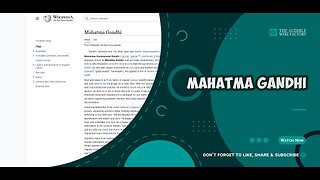 2:01:42
2:01:42
The Audible Wiki Factory
1 year agoMohandas Karamchand Gandhi, popularly known as Mahatma Gandhi, was an Indian revolutionary,
92 -
 9:57
9:57
What You Missed In Tamil Class
1 year agoThe History of Tamils in Sri Lanka | What is Maaveerer Naal
91 -
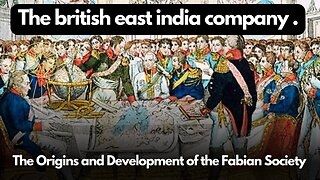 19:45
19:45
The History Speaks (Books Reader)
1 year agoThe Origins and Development of the Fabian Society | The british east india company
655 -
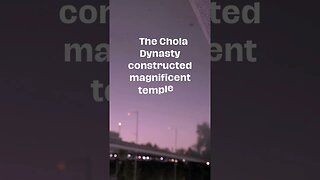 0:06
0:06
vivek1811
10 months agoIndian History Facts : 24
29